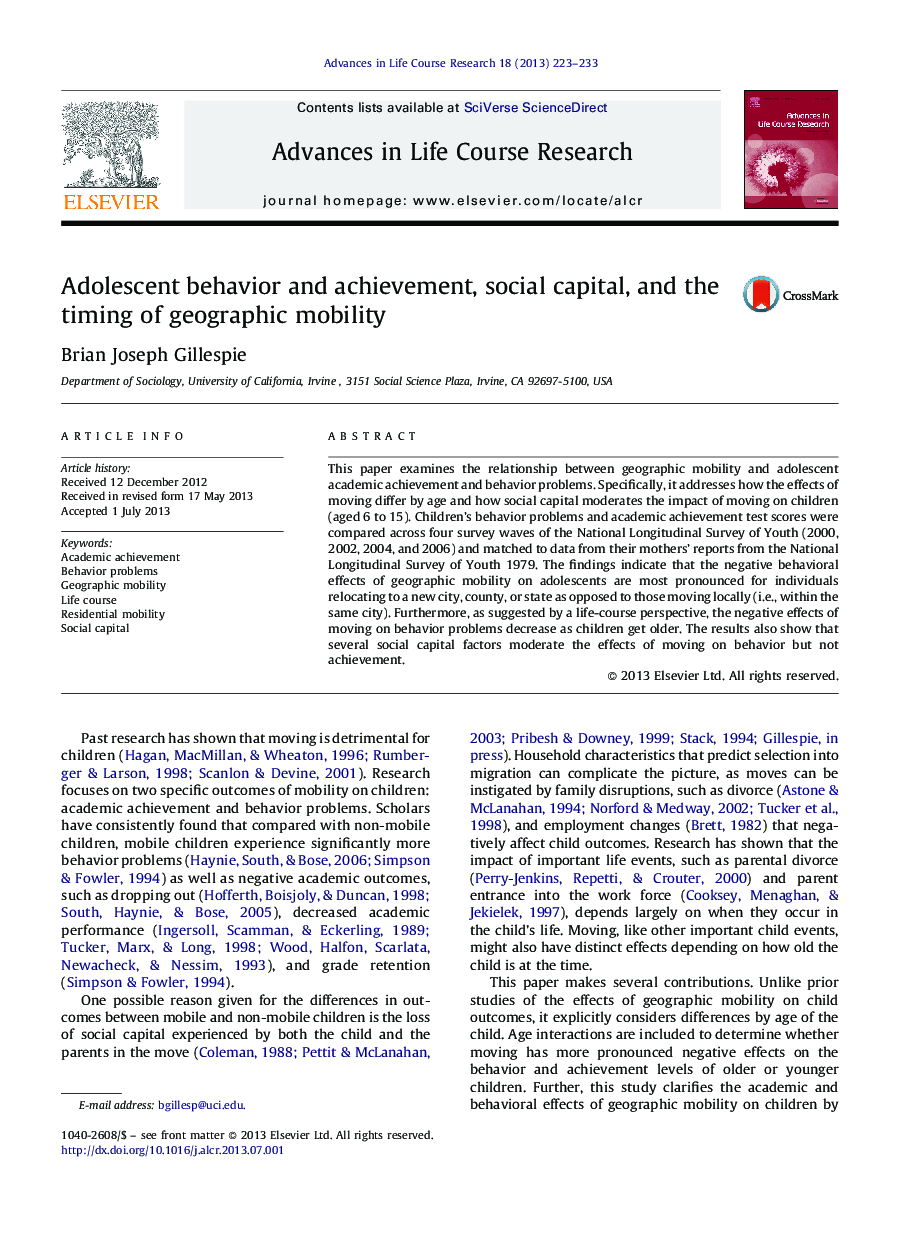| Article ID | Journal | Published Year | Pages | File Type |
|---|---|---|---|---|
| 10296813 | Advances in Life Course Research | 2013 | 11 Pages |
Abstract
This paper examines the relationship between geographic mobility and adolescent academic achievement and behavior problems. Specifically, it addresses how the effects of moving differ by age and how social capital moderates the impact of moving on children (aged 6 to 15). Children's behavior problems and academic achievement test scores were compared across four survey waves of the National Longitudinal Survey of Youth (2000, 2002, 2004, and 2006) and matched to data from their mothers' reports from the National Longitudinal Survey of Youth 1979. The findings indicate that the negative behavioral effects of geographic mobility on adolescents are most pronounced for individuals relocating to a new city, county, or state as opposed to those moving locally (i.e., within the same city). Furthermore, as suggested by a life-course perspective, the negative effects of moving on behavior problems decrease as children get older. The results also show that several social capital factors moderate the effects of moving on behavior but not achievement.
Keywords
Related Topics
Physical Sciences and Engineering
Mathematics
Statistics and Probability
Authors
Brian Joseph Gillespie,
